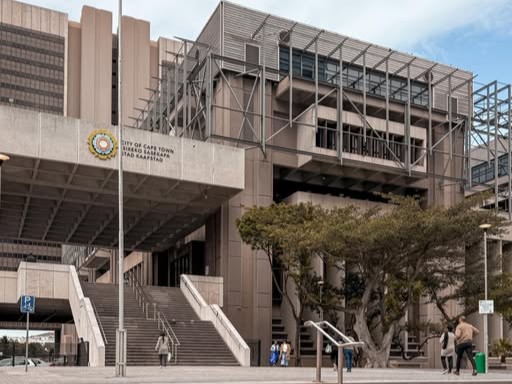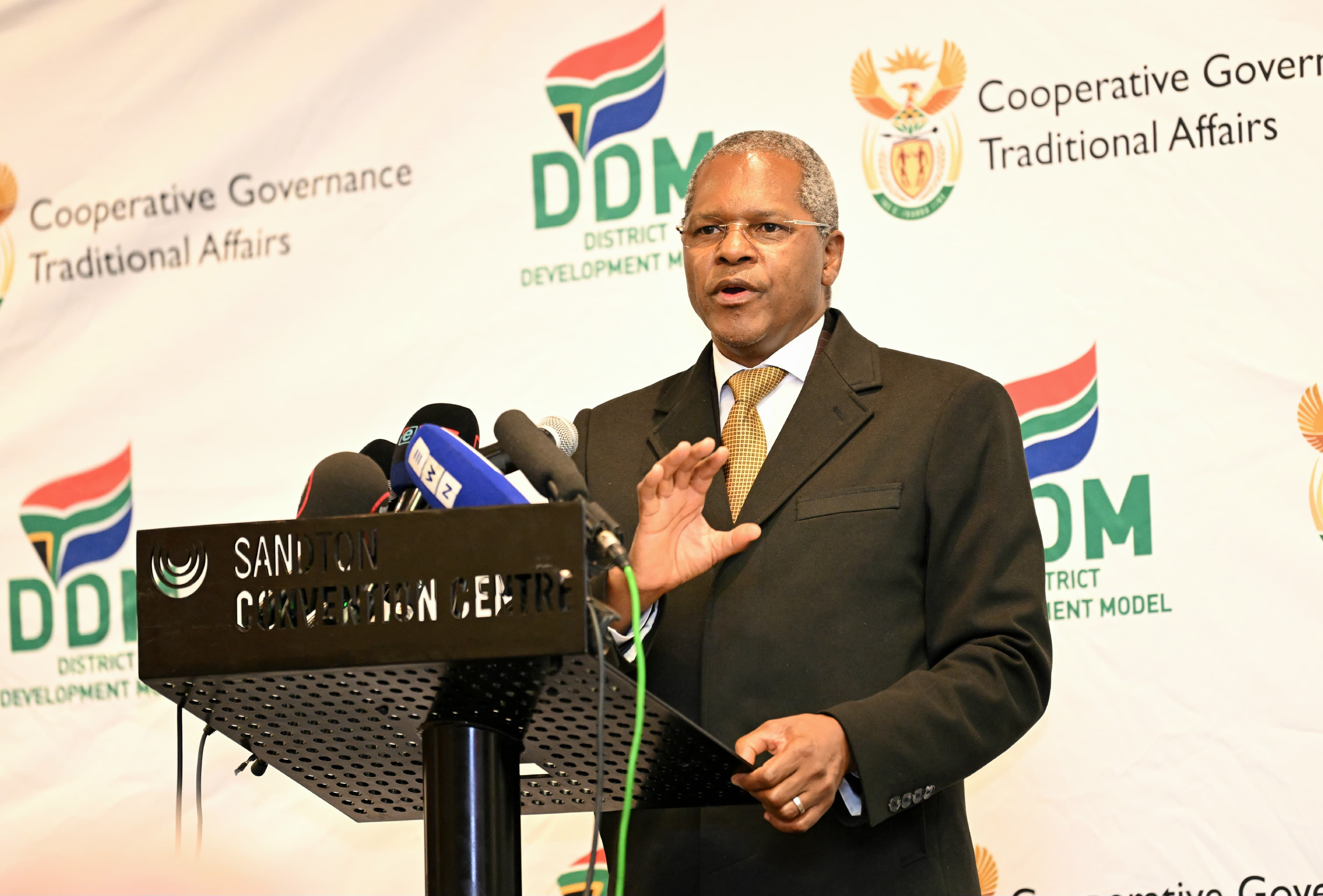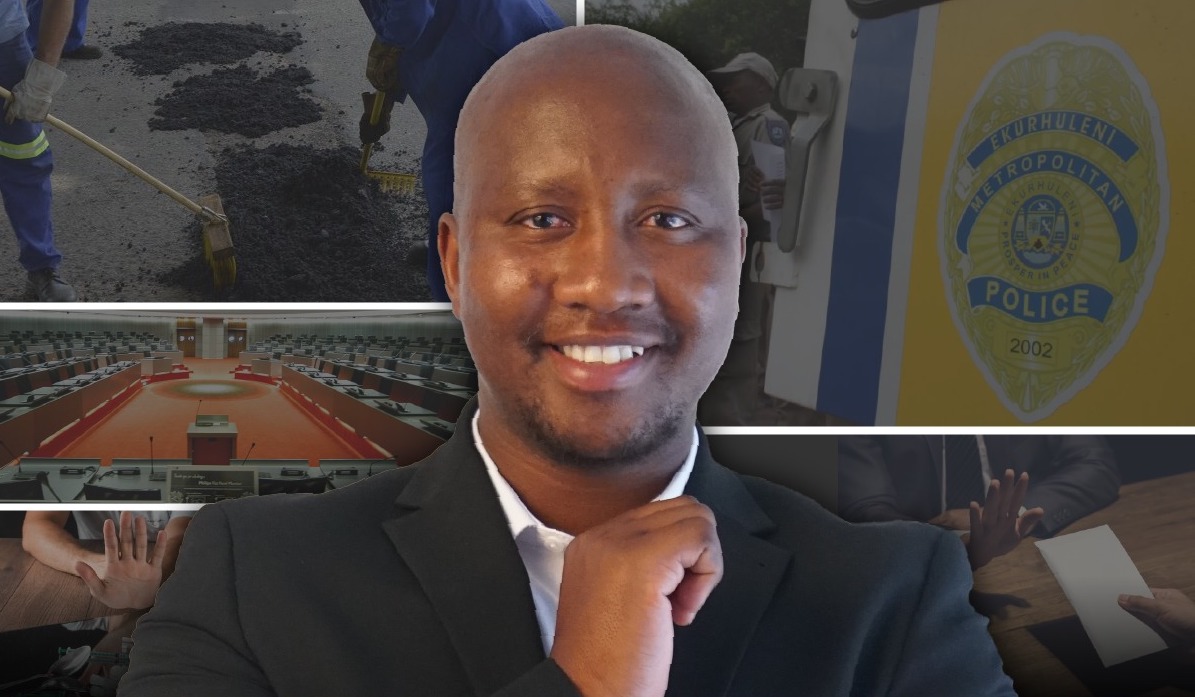Build One South Africa (Bosa), Good and Rise Mzansi have merged to form Unite for Change, ahead of the 2026 local elections. However, the parties’ current councillors, MPs, and MPLs will serve out their terms under their existing party banners.
Political parties Rise Mzansi, Build One South Africa (Bosa) and Good have joined forces and will contest the 2026 local government elections as one entity, Unite for Change (UFC), which they plan to register with the Electoral Commission of South Africa (IEC).
The formation of the UFC comes as the ANC’s share of the vote continues to decline, with internal splits weakening it and leading to breakaway parties.
Those parties, and others that believe they can fill the gaps where the ANC has failed, continue to emerge, leading to ever-longer ballot papers and the ongoing fragmentation of South Africa’s political arena.
Meanwhile, the DA has struggled to increase its support, leaving it unable to rival the ANC or secure a dominant role in coalition negotiations, with the party peaking at 22.2% nationally in 2014 and 26.9% locally in 2016.
As Daily Maverick has reported, voter dissatisfaction with South Africa’s main political parties, together with there being no big, viable alternative, has resulted in several microparties gaining representation in local councils, where they are kingmakers. Many of these municipalities have experienced frequent changes of government.
Read more: Small parties, big stakes – local governance failures set the stage for 2026
The formation of the UFC appears to be an attempt to reverse the trend and provide a viable alternative to the ANC, DA and smaller parties accused of splitting the vote. While Rise Mzansi, Bosa and Good together won under 1% of the 2024 national vote, they have well-known leaders — Songezo Zibi, Mmusi Maimane and Patricia de Lille.
“We have put aside our differences to build an offering that citizens can unite around to bring change and hope to villages, towns and cities across South Africa,” said Rise Mzansi’s Vuyiswa Ramokgopa at the UFC’s launch in Sandton on Sunday.
“We are united for change under one name, one set of electoral lists, one shared platform and one purpose,” the parties said.
“This is a new offering to voters, a credible and consolidated alternative to the lack of real options South Africans face on the ballot paper.”
As early as late 2023, there were already discussions about whether smaller parties such as ActionSA and Rise Mzansi should unite, given their similar values and policies, but differences and “egos” stood in the way, according to Maimane.
Moonshot Pact echoes
The new entity has echoes of the Multi-Party Charter, or the Moonshot Pact, in which the DA, FF+, IFP, ActionSA and others agreed before the 2024 elections to work together in a coalition to remove the ANC if they had the numbers.
Despite the ANC’s record-low vote, the opposition parties didn’t have the numbers to form rival coalitions nationally or in the provinces and the plan was abandoned. Many of the parties instead chose to work with the ANC to form governments at national, provincial and local levels, most notably in the Government of National Unity (GNU).
The difference with the UFC is that it will be registered as a political party ahead of the 2026 elections, and the individual parties involved will not appear on the ballot.
The convenor of the Multi-Party Charter, William Gumede, believes South Africa’s political fragmentation has created both a challenge and an opportunity for centrist parties.
“Most of the political parties are actually the same. So what we need to do as a country is to consolidate some of these political parties. If we can’t merge them, then we have to have permanent alliances and coalitions. That will stabilise our politics,” said Gumede.
He believes it is important to have a “political centre”, which he defined as parties that are pro-constitutional, pro-entrepreneurship and nonracial, offering an alternative to the ANC and populist parties like the EFF and MK.
“Ordinary South Africans understand that our country is very diverse, and they want to work with people. No one wants to chase somebody else out of the country,” he said.
Gumede argued that centrist parties could capitalise on people who did not vote.
“If you just get a small slice of the people who did not vote, it will give any party 50% plus one. Rather than try to become another ANC or another EFF, actually focus on getting the people who did not vote,” he said.
How will the UFC work?
Ramokgopa stressed that the launch of the new party doesn’t mean the end for the founding parties, with current councillors, MPs, and MPLs set to continue serving out their terms under their existing party banners.
“Bosa, Good and Rise Mzansi remain fully intact as entities, with their current electoral mandates and responsibilities honoured in full. This is the first step towards the long-term mission we are on,” said the parties.
This means the parties that comprise the UFC will have a dual membership system. In 2026, none of those parties will contest the elections. Instead, they will work together to select candidates to run in the local government elections under the UFC banner.
For now, the new party will be led by a collective leadership council.
The local government elections appear to be a trial run. Plans for the 2029 national elections have not yet been made, as the merger is still in its formative stages.
“This is the beginning of the process,” said Zibi.
The parties called on other organisations to join the UFC, saying, “The door is wide open, with conversations already under way with others to grow this movement.”
Major challenges
South Africa is grappling with several major challenges, including high unemployment, unprecedented levels of crime, service delivery failures and gender-based violence, while corruption and governance issues continue to erode public trust.
In August, at Daily Maverick’s flagship event, The Gathering, Zibi said there wasn’t a single political party in the country that had the depth of talent needed to deal with the crises facing every community.
“It is important that we form a political centre [with] leaders … [from] civil society, activists in different communities, who are fighting the daily political battles,” said Zibi.
Read more: Maimane, Mashaba and Zibi test waters for centrist party merger in 2026 polls
Daily Maverick has reported that a small circle of wealthy individuals are largely responsible for keeping the wheels of South Africa’s political funding turning.
On Sunday, journalists asked whether donors had a say on the decision to merge ahead of the 2026 elections.
“It is a factor,” replied Zibi, “but from a different perspective.”
Read more: Mired in opacity — 10 hard truths about SA’s political party funding
He argued that by pooling resources, the merged entity could run more efficient campaigns, avoid duplicating efforts and present a unified message to voters.
“That is the logic around funding. It’s a logic that identifies itself. Nobody has to come and tell us [what to do]; I think we are fairly intelligent people around here,” said Zibi.
For Maimane, the merger is about collaboration and competence. He believes South Africa doesn’t suffer from too many political parties, despite 50 parties appearing on the national ballot paper last year.
“[South Africa] suffers from a lack of honesty, capability and people willing to work together,” he said.
Many citizens, said Maimane, know “deep down in their hearts that South Africa isn’t heading in the right direction. They believe and they hear that there are too many empty promises, and they fear that there isn’t a plan.”
De Lille, who has served in government for almost three decades, framed the merger as a response to endemic corruption: “We are sick and tired of corruption, greed, and stealing. The government must act with urgency.”
She pointed to billions that continue to be spent on commissions of inquiry that rarely result in criminal prosecutions.
Looking to 2026
As the party prepares to contest the local elections, its campaign will focus on the following five priorities to strengthen municipalities:
Capable and ethical leadership: Promoting values-based leadership, ending cadre deployment and rooting out corruption.
Local economic recovery: Driving jobs and growth through local investment in the digital, creative, care and tourism sectors.
Dignity through basic services: Ensuring access to water, electricity, refuse collection, public transport, housing and healthcare.
Safety and justice: Tackling crime, corruption and violence, upholding the rule of law and ensuring legal and productive immigration.
Digitisation: Using technology to improve planning, maintenance, resource allocation and corruption-free procurement. DM
[SRC] https://www.dailymaverick.co.za/article/2025-10-05-what-the-good-bosa-rise-mzansi-merger-means-for-sas-2026-coalition-politics-arena/
 Visit the website
Visit the website







